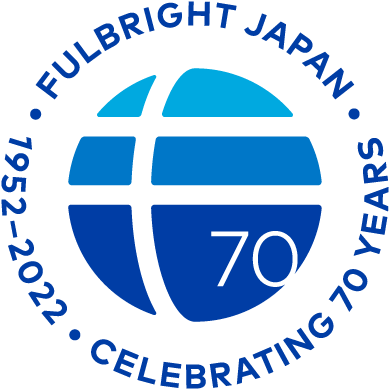About Fulbright Japan's 70th Anniversary
Since the end of World War II, the U.S.-originated Fulbright Program has developed to become one of the world's best-known and most authoritative foreign exchange programs. Based on the belief of the late U.S. Senator J. William Fulbright that people-to-people exchanges are the most effective means to promote world peace, this program was launched in Japan in 1952 as a successor to the GARIOA Program.*
2022 marks Japan's 70th Anniversary with Fulbright, a significant milestone celebrating 70 years of foreign exchange between Japan and the United States. As we celebrate this achievement, Fulbright Japan (the Japan-U.S. Educational Commission) aims to deliver the following:
- Strengthen the Japan-U.S. alumni network
- Connect the next generation with opportunities to study abroad, in the U.S. and Japan
- Reinforce friendly relations between Japan and the United States
To realize these goals, we plan to hold a series of events throughout the year to connect Fulbrighters (Fulbright Scholars and Alumni), the U.S. and Japanese government officials, companies, organizations, and individuals who support us and future Fulbrighters.
Dates and information will be updated on our website throughout the year.
To the Press
If you would like to inquire about coverage or receive press releases (at the time of distribution), please contact us here.
